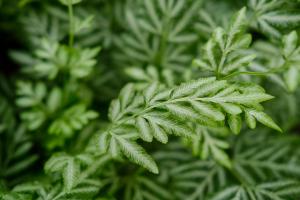Is Old Pool Water OK for Plants?
After a long summer of swimming and pool parties, many homeowners are left with a lot of old pool water to dispose of. However, before you dump it down the drain, you may be wondering if there's a more eco-friendly solution. Can old pool water be used to water plants? The answer is, it depends!
What's in Old Pool Water?
Before you start watering your plants with old pool water, it's important to know what's in it. Chlorine, the chemical commonly used to sanitize swimming pools, can be harmful to plants in large doses. However, over time, chlorine in pool water naturally breaks down into harmless compounds, such as chloride and hypochlorous acid. That's why the longer the pool water sits, the less chlorine it contains. Other chemicals, like algaecides and pH adjusters, can also be present in pool water, but in smaller amounts.
Benefits of Using Old Pool Water for Plants
If your old pool water has been sitting for a while and doesn't contain much chlorine, it can actually be beneficial for your plants! Pool water contains several important nutrients that plants need, including nitrogen, phosphorus, and potassium. Nitrogen, in particular, is essential for plant growth and can be found in high concentrations in pool water.
Using old pool water for plants is also an eco-friendly option. Instead of wasting hundreds of gallons of water by draining your pool, you can reuse it to hydrate your garden. Plus, the use of pool water for plants reduces the amount of wastewater that goes into your drainage system, which can benefit the environment in the long run.
Factors to Consider
While the idea of reusing old pool water to water your plants may seem like a great idea, there are a few factors to consider before doing so. First, consider the type of plants you have. Some plants, such as ferns and tropical plants, are more sensitive to chemicals and may not tolerate pool water well. Other plants, like vegetables and fruits, may benefit from the extra nutrients found in the pool water.
The pH level of the pool water should also be taken into account. Most plants grow best in a slightly acidic pH range of 6.0 to 7.0. If your pool water has a high pH level, it may be too alkaline for some plants and could harm them.
Tips for Using Old Pool Water for Plants
If you decide to use old pool water for your plants, follow these tips to ensure the best results:
Let the pool water sit for at least one week before using it to water plants. This will allow the chlorine to dissipate and the pH level to stabilize.
Avoid using pool water on plants that are sensitive to chemicals or have delicate foliage.
Water plants with pool water only once a month to avoid build-up of chemicals and to prevent over-fertilization.
Test the pH level of the pool water before using it on your plants. If the pH level is too high, add some vinegar to lower it.
Conclusion
Using old pool water for plants can be a great way to reduce water waste and provide your garden with the essential nutrients it needs. However, it's important to consider the type of plants you have, the pH level of the pool water, and how often you should use it. By following these tips and being mindful of the chemicals in your pool water, you can ensure the health and vitality of your plants while also being environmentally conscious.

 how many times do yo...
how many times do yo... how many planted tre...
how many planted tre... how many pine trees ...
how many pine trees ... how many pecan trees...
how many pecan trees... how many plants comp...
how many plants comp... how many plants can ...
how many plants can ... how many plants and ...
how many plants and ... how many pepper plan...
how many pepper plan...
































